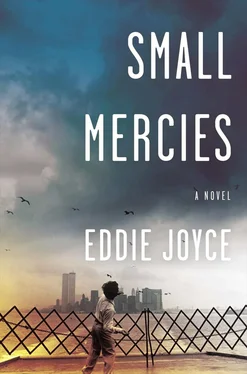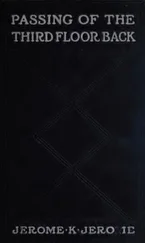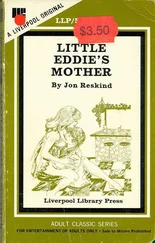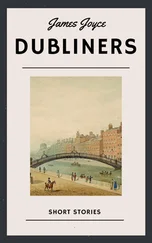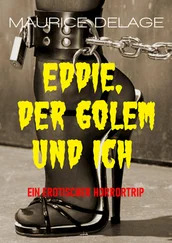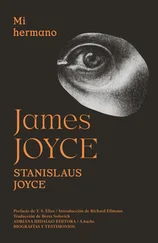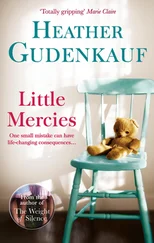“Hey, back from the Leaf?”
“Yeah, I think maybe I’m spending too much time at that place.”
“You don’t say.”
She laughs. He giggles. He’s a little tipsy.
“Franky called.”
“I assume you didn’t tell him.”
Michael’s smile slackens into a frown.
“No, I didn’t. I was thinking, Gail. Maybe we should just ask him not to come. None of us needs a scene.”
“He’s little Bobby’s godfather, Michael.”
“I know, but maybe it’s better if he’s not here.”
Gail lifts a finger, starts chewing on a nail. “You gonna call him back?” he asks.
“Tomorrow. I’m too tired tonight.”
She holds up the bag to change the subject.
“You hungry?”
“Actually, yeah.”
She tosses the bag to him.
“Half a hero left. Chicken cutlet.”
He doesn’t ask where it’s from. He doesn’t have to. This is part of his penance too; he has to spend the rest of his life eating sandwiches from a store he could have owned.
She fetches a plate from the kitchen, hands it to him, sits down next to him on the couch. She puts her head on his shoulder, pulls an afghan over her legs. He eats the sandwich with his right hand, puts his left on her back.
“Who’s playing?” she asks.
“I don’t even know,” he says, between bites.
* * *
He took her to Ireland the fall after Bobby’s senior year. They hit the tourist spots in the west: the Cliffs of Moher, the Lakes of Killarney, the Burren. In Galway, Gail bought each of her boys a cable-knit fisherman’s sweater. Outside of Cork, they leaned over and kissed the Blarney Stone, even though someone told them that the locals liked to piss on it. They enjoyed the people, enjoyed the pints. Michael said it was the most beautiful place he’d ever seen.
For years, friends had told her that Ireland felt like home even if your family had left two centuries ago. And she always thought it was nonsense, a bit of nostalgia and a lot of advertising, but when she was actually there, with the misty rain and the stereotypical shades of green and the beyond-friendly people, she did feel something. Not that it was home. She knew where home was. More like some small part of her still belonged there, and that part’s joy at its long-overdue homecoming was as pure and clean as anything she’d ever felt.
They stayed a few extra days so they could drive up to Donegal, see the nowhere town where Gail’s great grandparents had emigrated from. They spent a night in a harbor town named Killybegs, got drunk with some locals, staggered back to their B and B in the wee hours of the morning, laughing.
When they got into bed, Gail listened as Michael’s giggles eased down into heavy breathing. He lay there, not sleeping, building up his courage. She knew what he would ask. Seven months had passed since she’d bitten Danny McGinty’s lip behind a bleacher in Brooklyn. Things had mended but not completely. Every moment between them since had held the absence of an answer to the question he couldn’t bear to ask. She wasn’t even sure how he knew about Danny, but he did. He coughed.
“Gail,” he said. She listened as the sound of her name died down. The room returned to silence. He couldn’t bring himself to ask. She answered anyway.
“No,” she said. “Almost, but no.”
They lay there for a moment, in the moist, cool air, an ocean away from their lives, and then Michael started to sob. He turned to her and cried on her stomach. He begged for her forgiveness and though she had largely forgiven him already, she forgave him again, completely this time. She forgave herself too for what had happened and what almost happened. She forgave the both of them, turned the page on the shop, Danny McGinty, the whole thing.
* * *
She didn’t know. Apologies were pointless, forgiveness unnecessary. Soon enough, absolution would be plentiful, incomplete, haunting, useless.
All would be forgiven in the shadow of the atrocity that loomed.
Chapter 8 THROUGH THE MIRROR
In the wincing half moment between awake and asleep, Franky Amendola’s mind is pure, unified by interlaced desires: he wishes that he were dead and his brother alive. This will be the best moment of his day, because in this moment, he knows he would do it. He would sacrifice his life for Bobby’s. In a heartbeat. Without hesitation. No questions asked. He has no doubt, no misgivings or second thoughts. He would do it. Were it that simple, he would do it.
And then, with merciless alacrity, he is reminded of the impossibility of the proposed exchange: his own death would not restore his brother. He controls only one half of the equation. Knowing that his own death would be useless removes most of death’s allure, and the thought of his mother standing over a grave removes nearly all of the rest. But the tiniest sliver of suicidal impulse lingers, impaling itself into some dark corner of his consciousness, a splinter he cannot remove.
He is awake now, shaking off the dewy futility of a well-crafted and oft-visited fantasy and confronting a multitude of unfortunate realities, each stemming from one central, indisputable fact: he is severely hung over. He pissed himself in the night, soaking the jeans he fell asleep in, as well as the sheets and the bed; the room smells like the bathroom at a brewery. His head is a tender piece of meat that an angry ironworker spent the night driving a stake into. The skin on his face feels too tight for his skull, as though a tiny, ill-tempered goblin were pulling on his ears in an attempt to have them meet in the back of his head. He suspects that while he was sleeping, someone lodged razors at various points in his throat. His stomach, perhaps sensing the discontentments of its brethren, is mercifully quiet.
But complaints are on the way.
He coaxes his torso into an upright position. He coughs into his hand and wipes it on an unsoiled portion of the sheets. He reaches over and cracks the window. On the windowsill, his personal effects are arranged in a neat little row: his keys, his cell phone, his wallet, an untidy wad of mixed bills, a pack of Marlboros. He must have emptied his pockets before passing out.
He can’t remember how he got home last night; a vague but unrelenting anxiety makes him think he would probably regret some of his actions if he could remember them. He tries to isolate his last clear memory. He was at Kelly’s with Denny Hogan and Tommy Acevo, watching one of the tournament games, Marquette versus Purdue. He was feeling good, not too hammered, when Hogan started with the shots. The game was at halftime. He got off his stool to walk to the bathroom. Hogan was in the bathroom too. They were laughing about something. In a good mood.
And then, nothing. A little slice of death. A dip in the black river.
“Fuck,” he says to an empty room. He remembers that Purdue was getting four and a half. They were winning at halftime. That’s what they were laughing about. But he can’t remember how the game ended. He picks up his cell phone tentatively, checks his dialed calls. Fuck. Lot of calls to one number and he doesn’t remember making all of them. He dials it again.
“Sports,” says the Hispanic female voice on the other end.
“TR three, three, three.”
“Password?”
“FA.”
“How can I help you, FA?”
“Balance?”
“FA, your figure is minus six hundred ninety.”
“Six ninety?” he says, incredulous.
“Yes. Anything else, FA?”
“No.”
“No action on this call. Thanks, FA.”
Fuck. He was up six hundred after Thursday and flat yesterday after the afternoon games. Now he’s seven hundred in the fucking hole and he can’t even remember how he got there. He closes his eyes, slides down to a lying position. He wishes a gorgeous, big-titted nurse would come into his room, give him a few Vicodin, wrap him in clean, nice-smelling sheets, put him to bed on a sea of pillows, and then suck him off while he drifted back into oblivion.
Читать дальше
